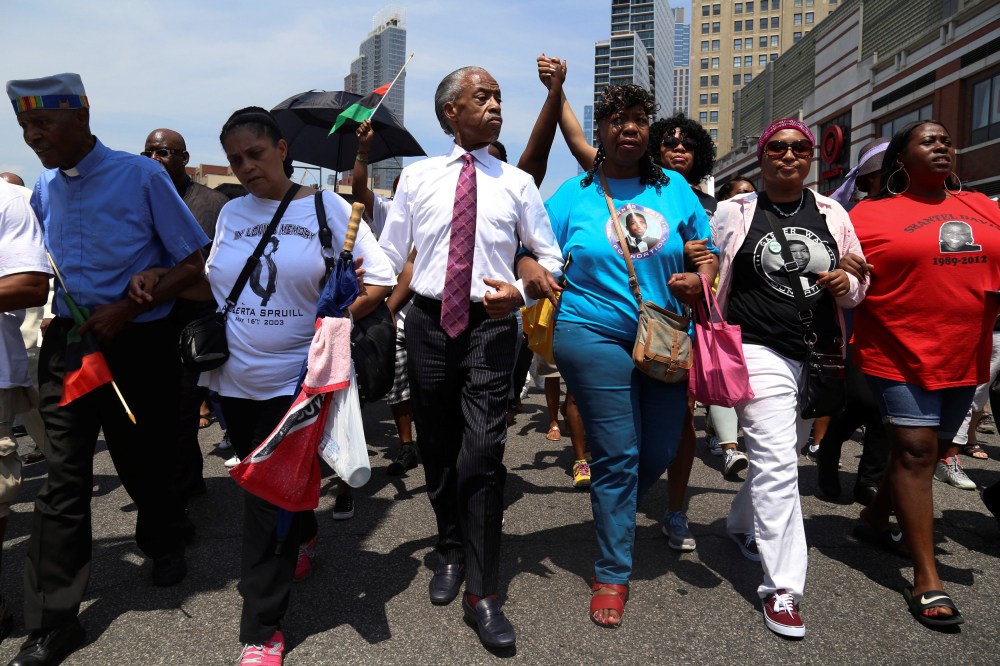Two years ago today, Eric Garner was placed in a chokehold until he died, pushed down to the ground by four plainclothes police officers who had initially approached him to see if he was selling loose cigarettes. A stop for what could have been at most a minor offense suddenly escalated into lethal action — pressing Mr. Garner’s face to the ground and crushing his chest while he repeated “I can’t breathe” 11 times.
At that moment, those four officers were seemingly propelled by over aggression and their instinctual biases, taking life and death into their own hands. In the past two years, there have been too many stories like these — most recently, the shootings of Philando Castile and Alton Sterling.
RELATED: Prosecutors and police: The inherent conflict in our courts
Since Eric Garner’s death, we have toughened measures to prosecute police brutality after it occurs, but we still have a ways to go in preventing the repeat of such incidents in the first place. Last year, my office successfully advocated for the appointment of a special prosecutor to investigate incidents of police brutality, and New York became the first in the country to incorporate this position into its state government. And the NYPD has also modified its training practices to include a greater focus on de-escalation tactics.
But now that we have developed procedures for dealing with police and civilian conflicts immediately as, and after, they unfold, we need to focus on tending to the larger picture: The critical need for trust between police officers and the communities they police.
Building trust involves many intangible factors, but we can move towards our common goal with a few concrete changes — first, by requiring every police officer to wear a body camera, in New York City and around the country. In 2014, in the aftermath of Eric Garner’s death, my office was the first to call on the NYPD to require officers to wear body cameras. The NYPD has begun the process of launching this initiative, but we still have yet to see its universal realization.
Each day, millions of police officers do the selfless work of putting their lives on the line to protect civilians, frequently responding to or preventing crises completely with no recognition. Our call for a universal body camera requirement is not to call into question the integrity of every police officer, but rather, to instill confidence in all communities that when police action is taken, that action is warranted. And if the action is not warranted, and results in gratuitous violence, that individual officer will be held accountable, and the relationship between the police and civilians will be all the stronger for it.
Footage from body cameras can also serve to exonerate our police officers from false accusations. The vast majority of our men and women in uniform are doing the right thing For this to work, we need body cameras that stay on during police encounters, and the public needs access to footage.
RELATED: NY judge will not release grand jury transcripts in chokehold death











